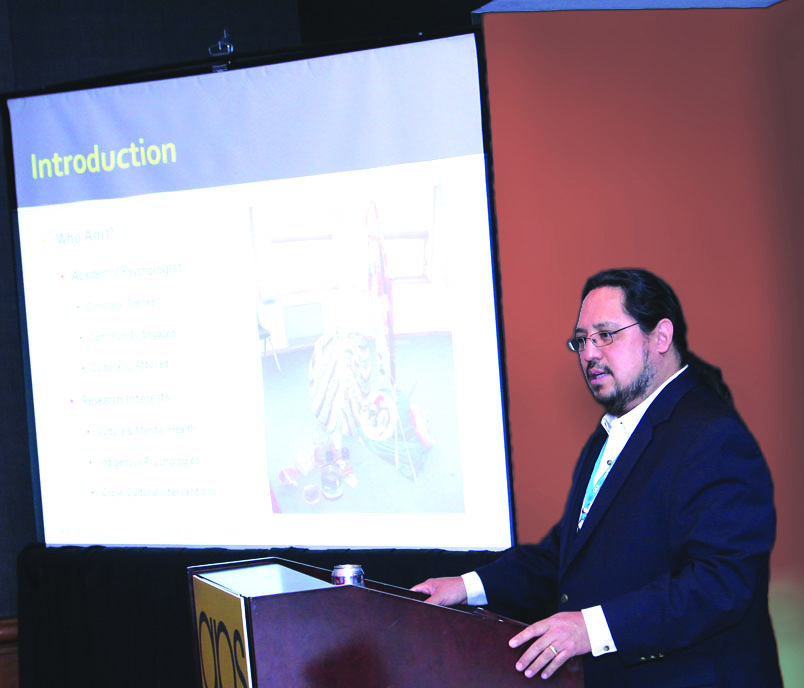Observation
At The Intersection of Culture and Mental Health

Joseph P. Gone is concerned about what the differences between indigenous and Western systems of knowledge mean for mental health care.
When it comes to mental health issues, Joseph P. Gone of the University of Michigan says that many American Indians prefer traditional therapies over therapies with European roots. This is a concern because US tribes rely on federal funding to meet community health needs — and as things stand, funding agencies favor scientifically vetted treatments (i.e., treatments with European roots). In his Invited Address at the 24th APS Annual Convention, Gone explained why scientific evaluation remains a sensitive and complicated issue among American Indians.
Gone says that Native American traditions emphasize knowledge that is “personal, oral, experiential, holistic, and narratively conveyed.” Within this framework, personal experience is especially important. “There’s no higher authority for knowing something than the fact that you yourself experienced it,” Gone explained. This contrasts with Western scientific traditions in which personal experiences are viewed with what Gone characterizes as skepticism.
As a behavioral scientist who studies the intersection of culture and mental health, Gone believes that it’s his responsibility to address the apparent contradictions between indigenous and western systems of knowledge. Gone is interested in developing alternative grassroots therapies that start with indigenous healing practices and then apply scientific methods, as opposed to the conventional practice of serving American Indian communities through mainstream western therapies administered by culturally competent practitioners.
Currently, he is collaborating with the Blackfeet Nation in Montana to design a community-based substance abuse treatment approach that relies on traditional cultural practices. Gone acknowledges that scientific evaluation of small-scale programs that promote “culture as treatment” is complicated. However, he hopes to scientifically demonstrate the efficacy of culturally local mental health interventions in ways that will engender future support by funding agencies.





Comments
This is right on. I am on the advisory council of the Native American AA. I have just moved back to Montana (Bozeman) and will be moving to Browning in the Spring. I am mixed blood Chickasaw and have been honored by my tribe as a “Living Elder” with my portrait hanging in our Cultural Center titled “Sober Indian”. I am also an adopted Blackfeet . I would be interested in reading more of your work in this sensitive area. Mainstream AA has resisted sovereignty issues so important to American Indians and recovery has been slow as a result.
APS regularly opens certain online articles for discussion on our website. Effective February 2021, you must be a logged-in APS member to post comments. By posting a comment, you agree to our Community Guidelines and the display of your profile information, including your name and affiliation. Any opinions, findings, conclusions, or recommendations present in article comments are those of the writers and do not necessarily reflect the views of APS or the article’s author. For more information, please see our Community Guidelines.
Please login with your APS account to comment.